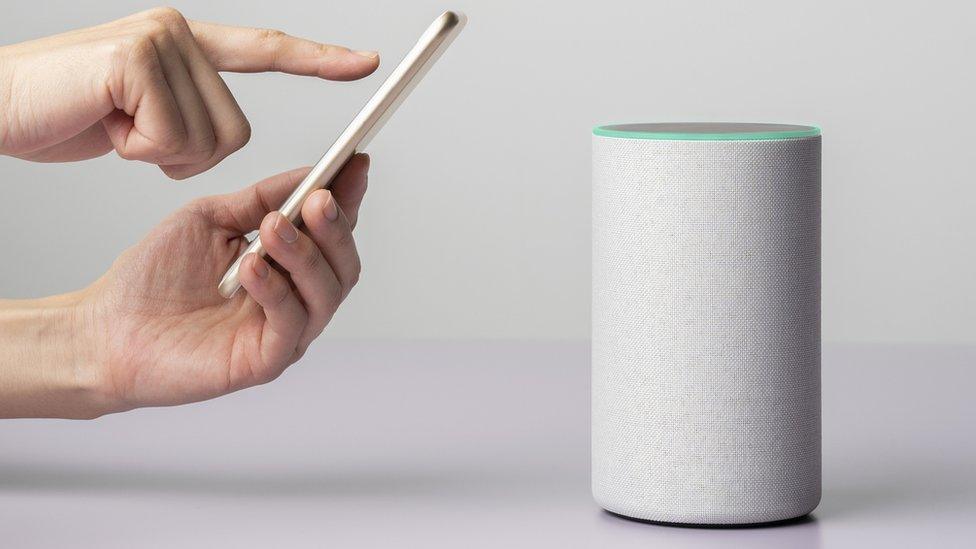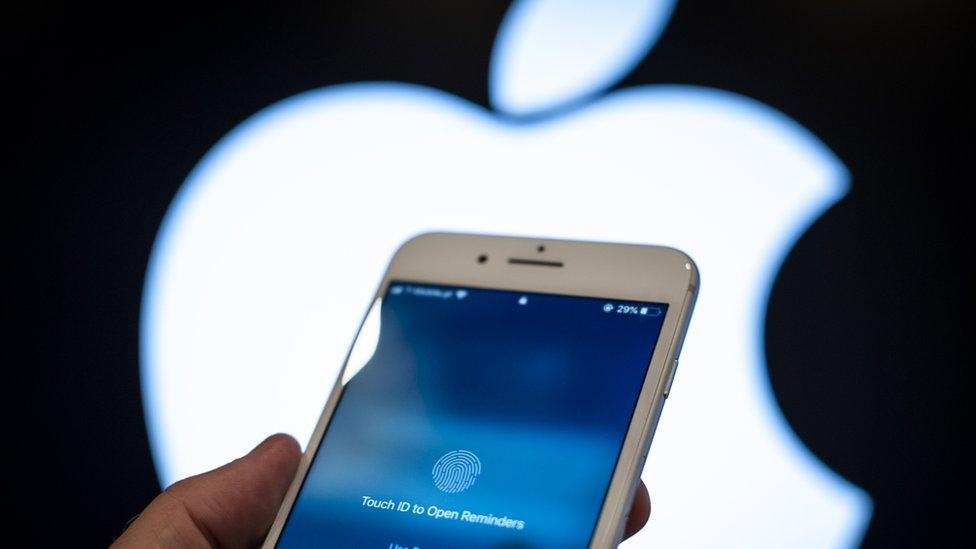Cyber-security chiefs warn of malicious app risk
- Published

From smartphones to smart speakers many devices have apps
A new report by the UK's National Cyber Security Centre (NCSC), external has warned of the threats posed by malicious apps.
While most people will be familiar with apps downloaded on to smartphones, devices from smart TVs to smart speakers now also have them.
The government is consulting on new guidelines, external on security and privacy for apps and app stores.
The NCSC's technical director, Ian Levy, said there was "more for app stores to do" on security.
Mr Levy added that cyber-criminals were "currently using weaknesses in app stores on all types of connected devices to cause harm".
Last year, the government noted, Android phone users downloaded apps which contained the Triada and Escobar malware from various third-party app stores.
"This resulted in cyber-criminals remotely taking control of people's phones and stealing their data and money by signing them up for premium subscription services," it said.
The NCSC's report noted that apps "can also be installed on laptops, computers, games consoles, wearable devices (such as smartwatches or fitness trackers), smart TVs, smart speakers (such as Alexa devices), and IoT (internet of things) devices".
It includes an example of a security company demonstrating how it could create a malicious app, external for a popular tracker from a fitness firm, that could be downloaded from a link using the company's web address to seem legitimate.
The app contained "spyware/stalkerware capable of stealing everything from location and personal body data". The company moved to fix the problem after the security firm alerted it.
A new code
The NCSC report noted that the appetite for apps had grown during the pandemic, with the UK app market now worth £18.6bn ($23.2bn).
The cyber-security centre supports the government's proposals to ask app stores to commit to a new code of practice setting out minimum security and privacy requirements.
"Developers and store operators making apps available to UK users would be covered. This includes Apple, Google, Amazon, Huawei, Microsoft and Samsung," the government said.
A proposed code of practice would require stores to set up processes so that security flaws can be found and fixed more quickly.
Related topics
- Published24 June 2021

- Published11 October 2016
